Uncategorized
-
 Oceans
OceansThe Deepwater Horizon oil spill spread much farther than once thought
Computer simulations reveal the full extent of the 2010 Deepwater Horizon oil spill in the Gulf of Mexico.
-
 Quantum Physics
Quantum PhysicsScientists entangled quantum memories linked over long distances
The entanglement of quantum ‘hard drives’ is a crucial step toward creating a quantum internet.
-
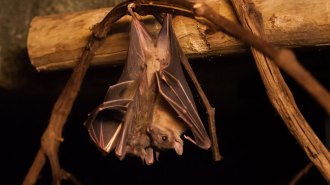 Life
LifeBats’ immune defenses may be why their viruses can be so deadly to people
A new study of cells in lab dishes hints at why viruses found in bats tend to be so dangerous when they jump to other animals.
-
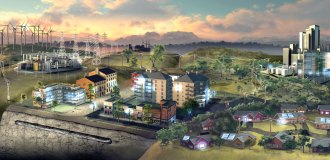 Tech
TechThe U.S. power grid desperately needs upgrades to handle climate change
The climate is changing faster than the U.S. power grid is adapting. Smarter grids and smaller grids could help.
-
 Physics
PhysicsHow to make the best fried rice, according to physics
Researchers show exactly how rocking and sliding a wok can launch fried rice into the air, letting it cook at a high temperature without burning.
-
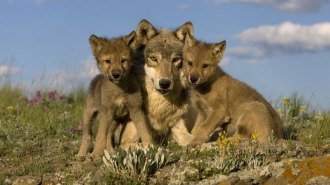 Life
LifeWolves regurgitate blueberries for their pups to eat
The behavior, documented for the first time, suggests that fruit may be more important to wolves than previously thought.
By Jake Buehler -
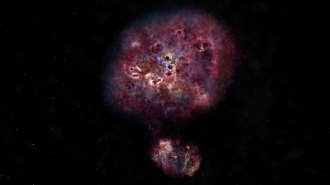 Space
SpaceAn ancient galaxy grew massive — then oddly stopped making stars
After ferociously producing stars for a few hundred million years, this galaxy in the early universe gave up, and astronomers aren’t sure why.
-
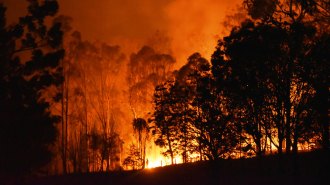 Ecosystems
EcosystemsWill Australia’s forests bounce back after devastating fires?
Intense bushfires that have blazed down Australia’s eastern coast could have long-lasting effects on the continent’s unique plants and animals.
-
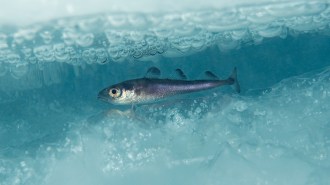 Oceans
OceansNoise pollution from ships may scare Arctic cod from feeding grounds
Melting Arctic sea ice is opening up northern waters to increased shipping, and the vessel noise is taking a toll on Arctic cod.
-
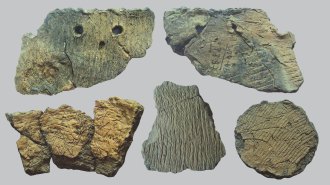 Archaeology
ArchaeologyFood residues offer a taste of pottery’s diverse origins in East Asia
Clay pots emerged in different places and for different reasons, starting at least 16,000 years ago, a study suggests.
By Bruce Bower -
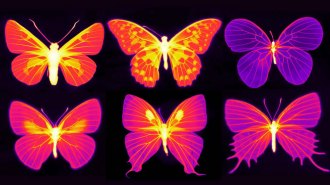 Life
LifeHow thin, delicate butterfly wings keep from overheating
Structures in butterfly wings help living tissues such as veins release more heat than the rest of the wing.
-
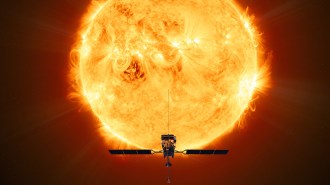 Space
SpaceESA’s Solar Orbiter will be the first spacecraft to study the sun’s polar zones
ESA's Solar Orbiter is now on its way to the sun, beginning a nearly two-year journey.